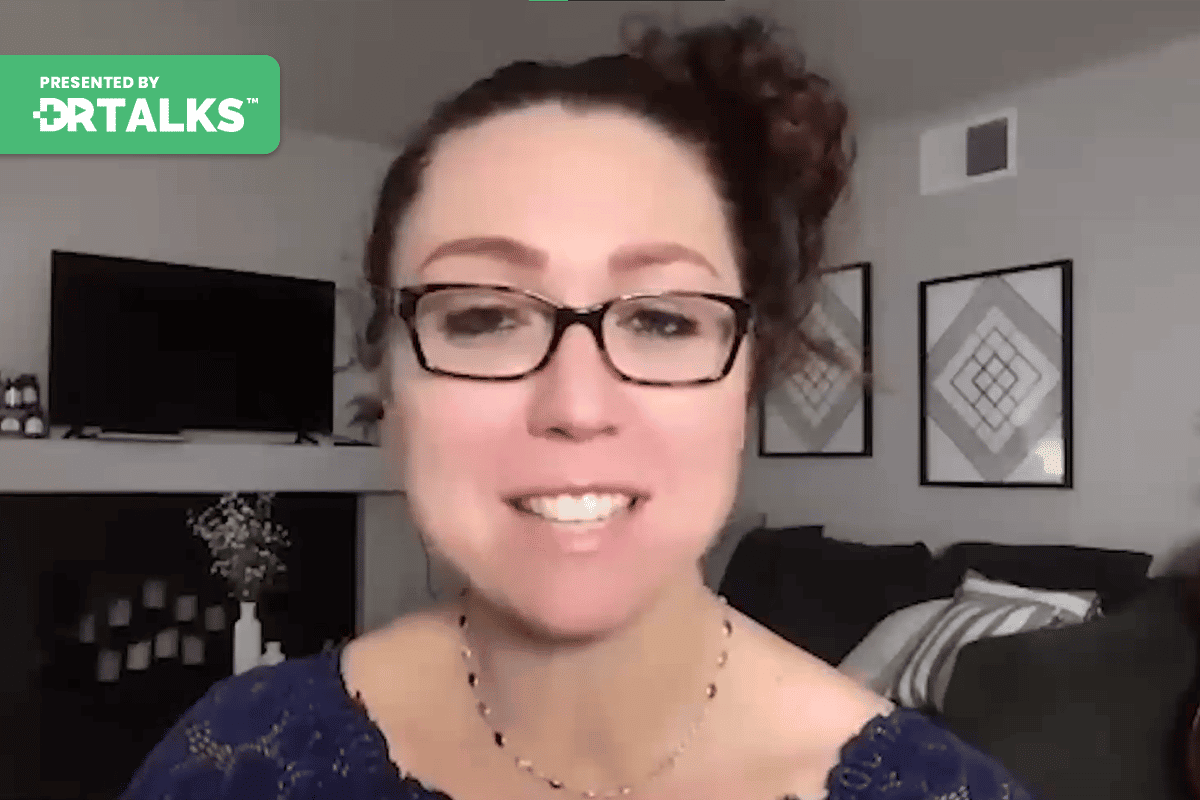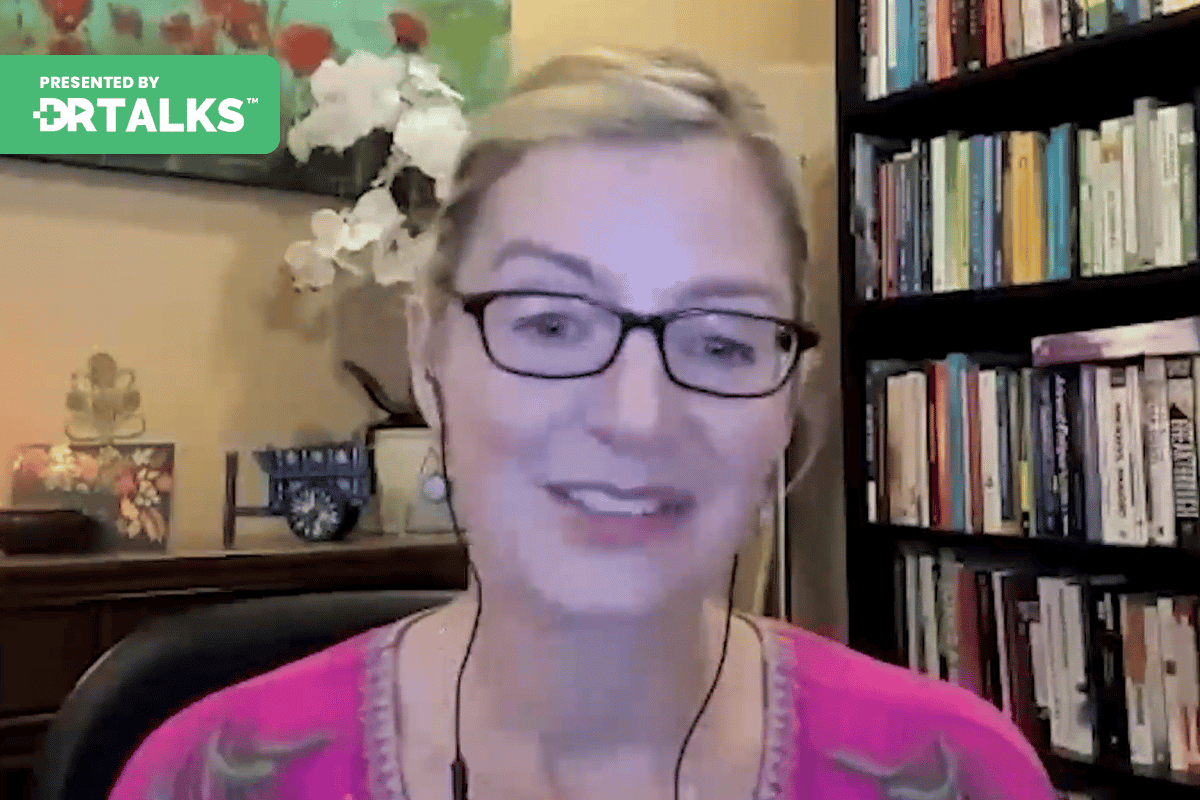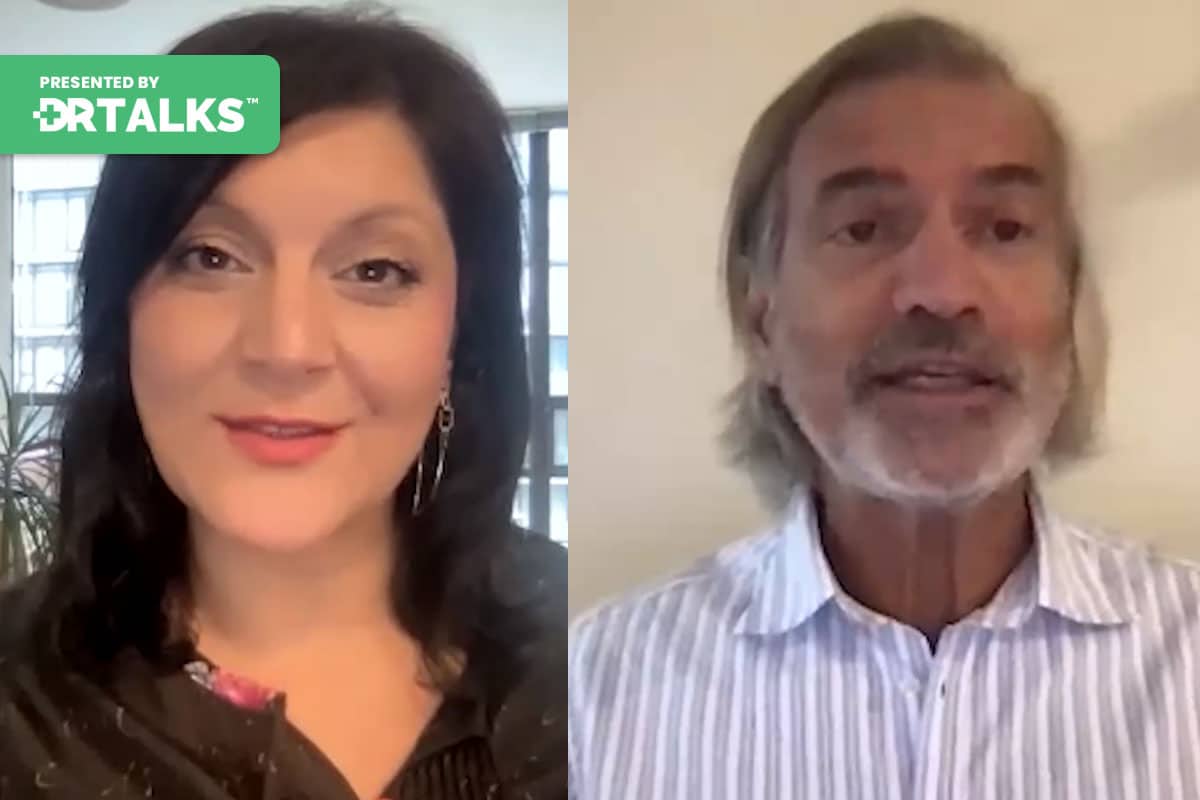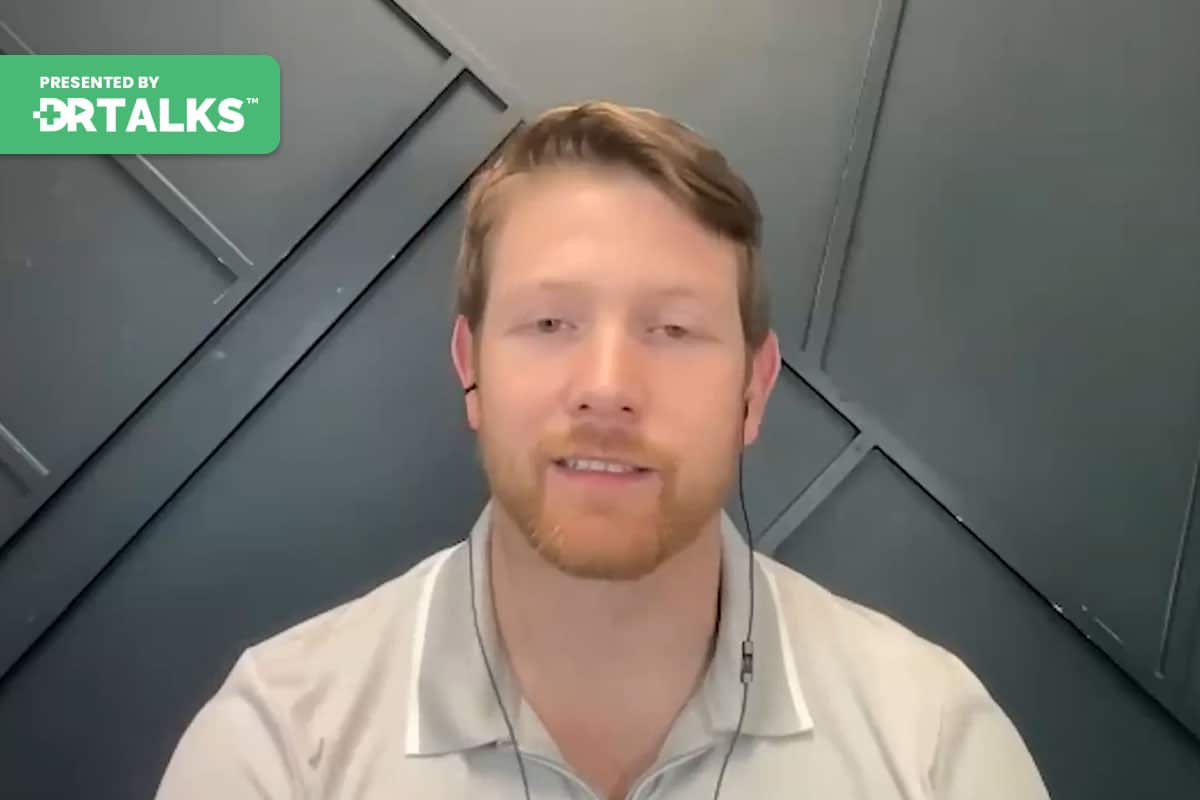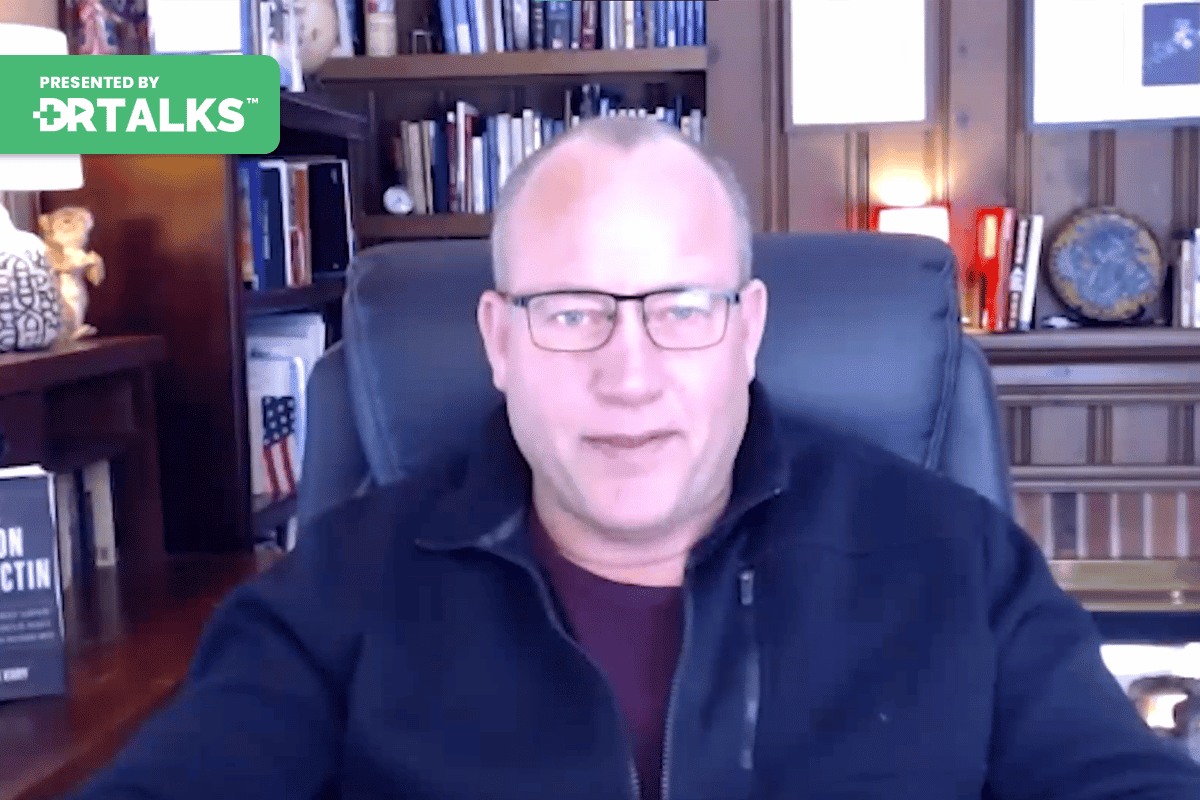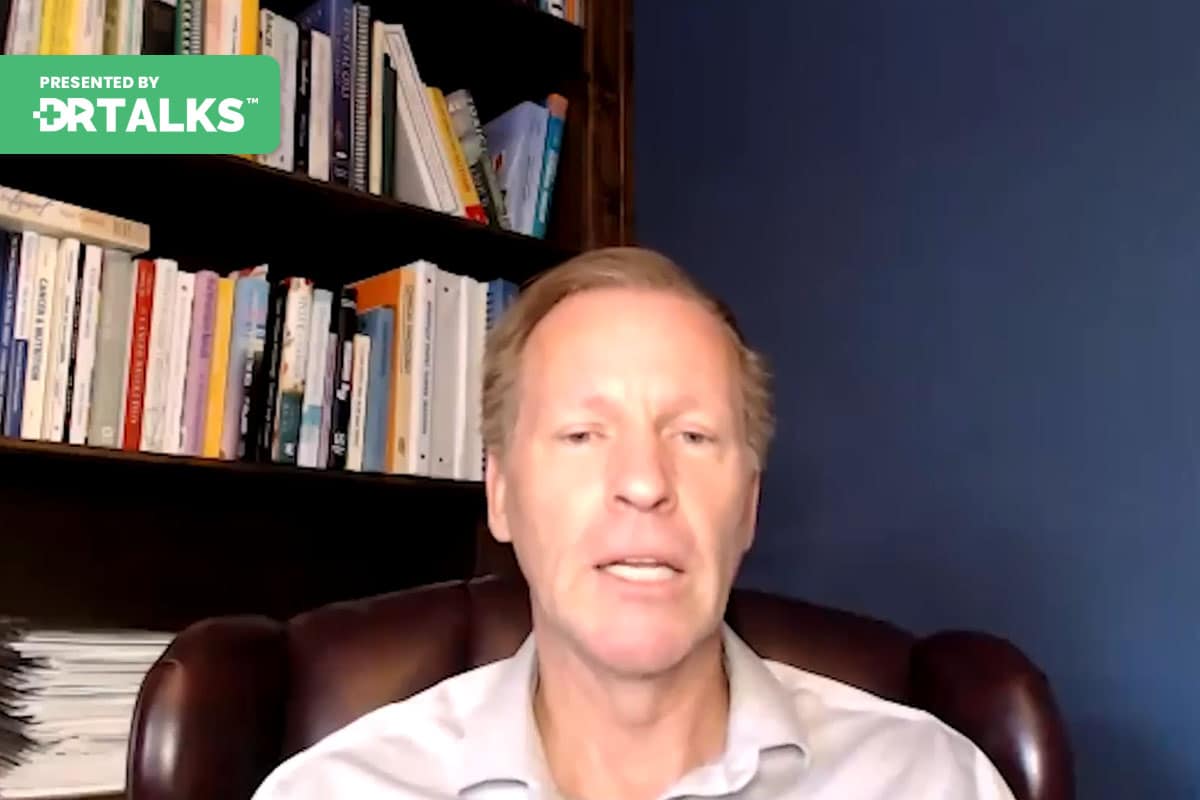Join the discussion below
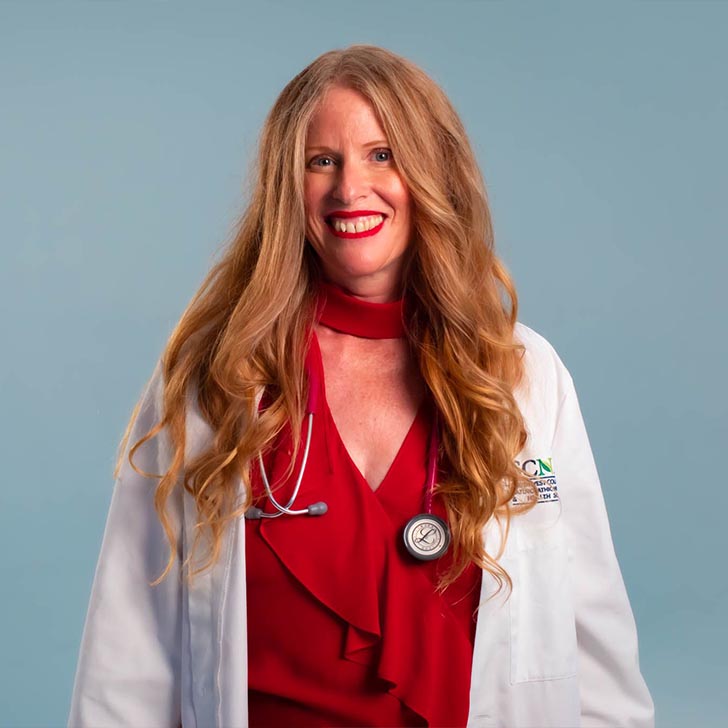
Dr. Sharon Stills, a licensed Naturopathic Medical Doctor with over two decades of dedicated service in transforming women’s health has been a guiding light for perimenopausal and menopausal women, empowering them to reinvent, explore, and rediscover their vitality and zest for life. Her pioneering RED Hot Sexy Meno(pause) Program encapsulates... Read More
- Why trauma is your biology and not psychology
- Three ways to recognize unresolved, stored, trauma
- Stored trauma in the body and its effects
- The biology that gets people stuck on their healing journey from trauma
- What biology pre-disposes us to experiencing trauma
Dr. Sharon Stills
Hi everyone. I’m Dr. Sharon stills, Welcome back to the long haul covid and fatigue summit. It’s pleasure to be here with you again talking about this very important conversation and tonight we are going to shift to a foundational piece in how we heal or why we don’t heal. And we are going to talk about trauma as we can. We cannot separate the physical, the emotional, the mental, they are all one. And I think this is often a piece that physicians forget about and can be a real root cause of why they don’t get the results with their patients and when we’re dealing with long covid. Yes, there are a lot of physical pieces as we’ve been learning that go into it, but there is a ton of emotional pieces. So I couldn’t think of anyone better to have this conversation with than Dr. Aimie Apigian. She’s the leading med expert on how life experiences get stored in the body and restoring the body to its best state of health through her signature model and methodology, the biology of trauma. She is double board certified medical physician and preventative medicine and addiction medicine. She’s got a bunch of masters in biochem and public health.
This is one educated lady and in addition to her medical training, she is also a certified functional medicine, physician has training and certifications in neuro autoimmunity, nutrition, genetics for addictions, mental health and mood and behavioral disorders. She has several certifications and various trauma therapies, including the instinctual trauma response model which is an art trauma therapy somatic experiencing developed by Dr. Peter Levine and neuro effective touch by Dr. Alain LaPierre. I said that right. So we are in the hands of a master here and so her personal life experiences have led her into trauma therapy training first for her adopted son and then for herself. So she has a very unique lens for understanding trauma, joining the two worlds neuroscience and trauma therapy uniquely. It has become the thread that ties it all together in a way that clinicians and patients find understandable and easily applied within their daily life. She offers science based solutions on how to rewire the nervous system with the biology of trauma, accelerating the healing journey through recovery to resilience presence and aliveness. She’s the founder and CEO of trauma healing accelerated offering her foundational online course. The 21 day journey to come alive nous. It’s an experiential journey into the nervous system that is open to all as well as an eight module certification course for practitioners, the biology of trauma that teaches the protocols of addressing the biology of trauma on the different systems of the body. She is one busy lady so we are very happy you took some time to be here tonight. Welcome Aimie. It’s good to see you.
Aimie Apigian, MD, MS, MPH
Always good to see you. Thank you.
Dr. Sharon Stills
You’re welcome. So I’m so glad you know that we’re going to have this conversation because we’re so focused on, you know what’s the virus and what are we gonna take to get rid of the virus and we forget about all the trauma that we have all collectively been through over the last couple of years. So um I don’t know if you just wanna I think your bio gave a really good explanation of who you are and everything. Is there anything else you want to add to that before I start drilling you with questions.
Aimie Apigian, MD, MS, MPH
I’m ready for the questions like I’m ready to jump into content and hopefully provide some insights and help people understand those better.
Dr. Sharon Stills
Perfect. So what is your perspective on long haul covid and the trauma that is associated with what we’ve all been through with this pandemic and so many people being sick and still being sick.
Aimie Apigian, MD, MS, MPH
Yeah. So my answer is going to come through the lens that I have which I have the lens of the physiology of the nervous system and understanding that there are three states of our nervous system. That’s it. There’s only three things you can’t be in any other state other than one of these three states at any given time. And that is parasympathetic and that parasympathetic state is where you have an embodied feeling that you just know in your gut that everything is good. Everything is okay. You are going to be okay. That’s parasympathetic stress or sympathetic state is where you have high energy and you are actively solving a problem of some danger or threat in your life. But it’s a very high energy state. And then there’s only one other state left. And so the third state of the nervous system is the trauma state. It’s the trauma response state. There’s a couple of different words that people use for this. I tend to use the word the freeze response quite a bit just because the body shuts down. And the other word for this, if people understand the political theory or have heard of the political theory, this is the dorsal vagal response. All three of those were talking about the same thing, which is a very different state of the nervous system. And this is where all long hollered from covid are spending most of their time in this third state of the nervous system, which is a very low energy state. It’s a state where the body, the biology or physiology is most affected. And there are two triggers for the trauma response either too much, too fast or too little for too long.
And from my perspective, most people with long haulers seem to have a biology that was more, too little for too long and their body can’t keep up with that anymore. And whether we’re talking about something emotional, whether too little of touch for too long, too little of love, nurture for too long, too little of support for too long. Or we’re talking about something truly nutritional, like too little of magnesium, too little of zinc, Too little of some of these nutrients, too little of mitochondrial oxygen production. Too little of these essential nutrients that our body needs for too long. And the body just goes into a collapsed state, which is the trauma response state. So regardless of whether you associate trauma with something emotional or not, there are only three states of your nervous system and all long haulers are in that third state, which is the trauma response state. So their body is physiologically in a trauma response, regardless of what other emotional stuff their biology their physiology is in a trauma response.
Dr. Sharon Stills
That’s a perfect way of explaining it. And do you think any of them are too much too fast as far as or you think it’s all pretty much too little too slow.
Aimie Apigian, MD, MS, MPH
I have not done enough research to be able to to know for sure. But my experience with other long haul syndromes significantly shows that the body is running on too little of something that it needs and it’s just getting by. It’s been too long. Now, there are always circumstances in our life when we can look back and we can say, oh, that was too much too fast, always. And those experiences certainly caused overwhelmed at that time in our life and that may be contributing and I’ll hopefully have time to go into this, but for the long haul syndrome where people are at right now, it seems that the the main trigger at this time is too little of something that they really need and it’s just been too long and it’s a matter of finding out what are those things, it’s with the trauma response and getting stuck in the trauma response and that’s what a long haul syndrome is, is getting stuck in that trauma response state. There’s never only one thing, there are multiple factors that have gone into leaving the body feeling like it has too little something for too long.
Dr. Sharon Stills
So when someone figures out, like they’re like, oh God, yeah, I had not enough hugs or not enough vitamin C and you start to replenish these things from a trauma lens perspective, can you do too much too fast or how do you cook? You speak to that? Because I’m sure some people are listening going, yeah, that’s me and I’m going to go do everything right now.
Aimie Apigian, MD, MS, MPH
Yeah, no, that was me back in the day, right? Like this is how I learned all this stuff was from doing it all wrong in my own personal life. So I was definitely the one who did everything, the good stuff right? Like too much too fast. If this therapy is gonna be good for me, I don’t want just a little bit, I want all of it right now because I want to get better now. And so even a good thing can be too much too fast. So what I, I kind of think of my body, my nervous system as being a tree that has grown sideways likely due to multiple factors, but say I am a tree by the by the coast and just the constant wind coming off of the ocean has caused me to bend slide to the side and I’m growing sideways now. That’s not how I am intended to live, that I am never going to reach my full potential as a tree. If I grow sideways, I am supposed to grow up into the sky. But what happens if I come over or someone comes over to me and says, no, what are you doing? This is not, this is not your purpose, you are not living your life, Let me help you. And they take that trunk and they bend it straight up so that it’s going up into the sky. What’s going to happen to that tree even though yes, that is a good thing because you want to be growing into your purpose in life, but that was too much too fast.
Of a good thing and it breaks us. And I think that the long haul syndromes are a manifestation of our body having been broken and we got here because we were experiencing things or doing things to ourselves that we’re too much too fast and now probably compounded onto that we have deficiencies and something, whether that’s deficiencies in life in our relationships and that kind of stuff or deficiencies in our biology that are also a feature of too little for too long and so coming in and just saying, well then I’m going to dump all of this of what you need, that’s going to be too much too fast. The body does amazing things when it has what it needs and it also needs to be able to process what’s happening in the moment and not be overwhelmed by even a good thing. I’ve seen people, you know, read and article about cryotherapy or read an article about sauna or read an article about this and then they go and they do, you know, this big thing because this is going to help them and they have a crash right, then they’re in bed for 34 or five days, they have a flare up of their chronic health symptoms. It’s just even of a good thing, it can be too much too fast. So my approach, even even with rewiring the trauma response is we dip in a little bit and then we just kind of hold right, just kind of like what we would do if we needed to help a tree grow in a different direction. We don’t come over and and and and bend it and then walk away and let it fall back over. That’s that’s not gonna help, we need to put something there so that there’s constant support and it feels nurturing and it feels protective and it feels guided as it is being kind of you know, it’s it’s branches and trunk being redirected to where it is supposed to go, but there’s this constant support rather than this inconsistent. Oh yeah, I’ll do this when I have time. It’s the small things and then the small things, but consistently that are really gonna help help our bodies come out of a trauma response.
Dr. Sharon Stills
I love that. I love you make me think, I always think of like, you know, we’re going through like our growth and I always get to these places in my life where I’m like, I’m just gonna plateau for a while and like, you know, let that all digest into my life and my experience and because otherwise it’s too much too fast and so that is and you’re making me think about, I remember studying oriental medicine years ago and like them saying you can have too much joy, you can have excess joy and we all thought, what the heck, how can you have too much joy, But it just speaks to exactly what you’re saying. Everything has its own, you know, balance, it’s like Goldilocks, not too, not too much, not too little. So that is just so well described, I love that and very encouraging. So I was wondering as you were speaking, what you think like, so if you’re in a long haul type of situation right now? Do you think that this was something you were predisposed to and maybe the trauma response was already there and then covid just kind of kicked it off or do you think some people could have been just fine and then the impact of covid really kicked off the trauma response?
Aimie Apigian, MD, MS, MPH
Well I’ll share with you what I see happening with PTSD. Those people who are diagnosed with PTSD and maybe they are in the military and so they go over for their tour and they come back with PTSD or they actually experience a significant event, a car accident or some other big event where they are walking away with chronic symptoms of a trauma response that is never only a result of that event? It’s how their nervous system was going into that event. And we see this because other people are there with them, other people are on the same military tour, they’re not coming back with PTSD. So what makes the difference? And the difference is is their nervous system going into the event? How much accumulated stress does their body already carry? How much of that trauma response is already wired into their nervous system. That then when one more thing happens or this is the really big thing that happens it’s essentially kind of what breaks the system and now they have chronic symptoms got.
Dr. Sharon Stills
So is this a genetic thing? Is it a trans generational thing like and if someone is listening. Like how do they know if they’re more susceptible to long haul covid or to P. T. S. D. Just to the trauma response. But I will keep it on covid.
Aimie Apigian, MD, MS, MPH
Yeah, so part of my work that has been fascinating for me to see. And yes this was part of my own personal journey was coming across the biochemical and biology factors that actually predispose someone to having trauma response in their life. And there’s a combination of different things. Some of them are genetic like viral area or pyro disorder. Speaking of which many long haul syndromes have viral disorders. So that would be one of the tests that I would really want to encourage people to get. Copper excess would be the other common biochemical imbalance that I see in people who have trauma responses and get stuck with physical health symptoms in the trauma response. So that would be another one that I would highly recommend people with any long haul syndrome to get tested for. But those are two examples of biochemical imbalances. One is truly genetic. The other is part genetic, part environmental where you need to have the genes that can’t clear copper well but then you also need to have an exposure to copper. Right? So and and so this is actually the copper excess, 95% of women who have postpartum depression or anxiety have copper excess and can’t clear it out of their system after their child is delivered. So copper levels always go up during pregnancy. Baby needs copper. The nerve System needs copper for its healthy development. But then a mom, if her genetics are such, she can’t clear that excess copper. And very soon after that baby is delivered, her estrogen progestin levels are changing and she now has symptoms of postpartum depression and anxiety 95% over 95%.
So this is a significant thing that that again predisposes her to experiencing a trauma response because she has this copper access and its effects on the nervous system. There are lots of things that will have an effect on the nervous system. Methylation and balance would be another one. And I look at it as you fall under two categories. If you have a methylation balance, you can have normal methylation, but otherwise you can have under methylation or you can have over methylation. And those approaches are very different. But almost either one of those, like you’re looking at you, you’ve got a biology that predisposes you to getting overwhelmed. You have a biology that predisposes your stress responses to get overwhelmed and for your body to go from yeah, I’ve got this, this is a problem, but I’ve got this to no, this is too big for me, I’m going to give up, I’m going to give in and we go into the trauma response. So there are many different biology factors that go into actually predisposing someone to a trauma response, attachment is also another one that really sets into play, one’s trauma response for the rest of their life unless they do some intentional work around rewiring those attachment responses. But our early early life experiences, especially in regards to the degree of coagulation that we had. So when we are born we actually have no ability to regulate our own systems, meaning a baby cannot pull themselves from that stress and sympathetic down into parasympathetic. They can’t do that by themselves. They have to have someone else who is in parasympathetic, who is calm to be able to come over and say, yeah I’ll share my nervous system with you and I’ll calm you down. But they have to have that co regulation. And if they don’t get enough of that, their system gets overwhelmed. It doesn’t just stay in that stress response. It actually goes into a trauma response and goes into the low energy state that I’m going to give up crying because what’s the use and they start to rewire in a default response to stress.
I’m just going to go straight into that what the use, I don’t have energy to spend on this and go into the trauma response. And so that can become literally programmed into us. And so then the body because the trauma response is actually a body response, not a mind response, it’s a body response. And so the body then well go into that trauma response at the first sight of danger and whether this is a danger from a text message that you get that you’re like, oh, what’s wrong? Do they not like me anymore? Or am I going to get fired or what happened? Or if this is a danger from a virus, the danger is there and our body has been programmed to see any danger as it’s always too big for me. I might as well just go into the trauma response and not even try to fight this. So that’s another element in which we go into experiences in life predisposed to having a trauma response. So it’s actually not as much about the event or the illness or the exposure. Yes, it is about that, but it’s not, it’s not all about that. It’s actually so much more about what our nervous system, the state of our nervous system is going into an exposure, going into an event and whether that will be something that our body is stressed out about or it experiences a trauma response and is overwhelmed by.
Dr. Sharon Stills
One of my favorite sayings is wherever you go there you are,
Aimie Apigian, MD, MS, MPH
There you are, wherever you go.
Dr. Sharon Stills
So you just made me think about that. So, and what about, you know, you hear about like for instance, like holocaust survivors and passing down those genes. So have you looked in, is that part of your work as well? Like looking into what we, what,
Aimie Apigian, MD, MS, MPH
What genes, what genes get passed down from holocaust survivors. Like there’s no trauma gene.
Dr. Sharon Stills
So but is there the experience that they passed down like to be in fear or to be worried or?
Aimie Apigian, MD, MS, MPH
So there’s a couple of different ways that that gets passed on. One would be through epigenetic six. And we can look at the changes in methylation that have happened over the last several decades and seen there are changes happening on a societal level from hardships and wars and famines and huge social ships worldwide that have caused enormous amounts of overwhelm. And that actually does change one’s epigenetics and gets passed on through. That means now epigenetics of course refers to just how our D. N. A. is read. So that if you walked into a library there’s all of your D. N. A. And all of the different books. But epigenetics is going to decide which book do you pull off the shelf to read and which book is not able to even be pulled off. And so that’s where you can actually experience a lot of changes in the neurotransmitters. So under meth letters for example which is usually that epigenetic ship when our ancestors experienced hardship and the under math letters not all of them but some of them can have the epigenetic change that causes low activity levels of serotonin and dopamine. So that would be something that you are born with? Not genetic per se it’s epigenetic but now you’re born with having lower levels of serotonin. Well serotonin is your happy neurotransmitter. So without normal activity levels of serotonin life is just harder for you.
It feels harder even though to someone else it feels great but you don’t have as much serotonin as they do. Same thing with the dopamine. So dopamine is one of those neurotransmitters that is essential for the bonding and attachment process. Well guess what if you have low activity levels of dopamine, it doesn’t matter how good or bad your mom was, your system experienced life harder, you experienced more emotional pain, more internal pain with lower activity levels of dopamine, you required much more co regulation and possibly more co regulation than your parent could provide. You, leaving you spinning out of control emotionally and going into that trauma response early on. So it’s fascinating to see how the generational stuff is passed on. But that’s the epigenetic side. The other stuff is a mom especially because mom is the primary source of co regulation simply because she carries the baby for nine months. And so they have this they have this bond and she can only share her nervous system. And so if she is experiencing anxiety, if she is experiencing depression, if she hasn’t done her own trauma work or if she hasn’t learned how to know which state of the nervous system she’s in and how to shift it to parasympathetic, guess what, guess what She’s going to pass on, she’s going to pass on her own nervous system. And so this is where so much of it is the non verbal transmission of one’s nervous system to our Children without our conscious awareness. We don’t even realize that it’s happening and that we’re doing this.
Dr. Sharon Stills
How I’m just curious, the parent is co regulating for the infinite. What point at what age can a child start to regulate themselves?
Aimie Apigian, MD, MS, MPH
Yeah, that’s a great question. And you can see it in Children depending on the coping mechanisms that are available to them as adults. We can walk to the refrigerator and we can overeat or emotionally eat and grab the carbohydrates and the whatever. And that’s how that’s one of our coping mechanisms for regulating. But a baby can’t walk over to the refrigerator. So a baby is limited in their coping mechanisms to regulate themselves, which is why early on for the 1st 69, 12 months of life. The only coping mechanism they have is just to kind of cut off their body sensations and to not care. And that’s the trauma response. So that is their coping mechanism. And it does help them survive.
So it’s a wonderful thing. The trauma response is not a bad thing. It’s a wonderful thing as they grow older. They can start to learn that oh, when I move, I can actually start to feel better and so you’ll see Children starting to rock themselves maybe right and there? Or they’ll have their thumb in their mouth or they’re always carrying around their teddy bear because that’s who they actually feel safest with or most connected with. Um and if you try to take their blankie away from them, that it’s a huge temper tantrum. So those are things that they start to latch onto as means of regulating themselves. That can actually be a way that we can identify that like this child has been experiencing overwhelmed because when those things are taken away or threatened to take away or the possibility of it being taken away, they lose control. It’s that important to them, that this is a survival thing for them, they’re using it as a coping mechanism for the trauma response.
Dr. Sharon Stills
That my granddaughter was sucking her thumb, she’s like 17 weeks now, 18 weeks now and you know, some people like, oh we don’t want to. So I was like, no, no, she’s regulating, she, she’s look at her seizing, that’s amazing thing. Like go you go, you so let’s talk about what does this mean? And what should, you know, the audience people who are stuck dealing in this long covid chronically fatigued, how does this translate to like I need help and finding the right team and where you know, typically you go to a physician and we’re going to say like physicians in our realm and so, you know, you’re not just getting a pill, you’re getting the right nutrients, you’re getting a proper diet and so forth, but where does the, how does this all fit in as far as the trauma.
Aimie Apigian, MD, MS, MPH
And what a challenge. Right like this is actually where I started with my health crash was right into chronic fatigue and long haul syndromes from, from various things and it’s a very hard place to be. So from my standpoint, there is no judgment on what people have done or needed to do in order to just try to get through. It’s a very difficult place to be. And for me at that time, I didn’t know if I was going to get better. I had no light at the end of the tunnel for a while. And so there’s no judgment, there’s no judgment on things that people have done or are doing now to just help themselves get through. I will say that there are some really bad things that people can do that will make it worse, that they think that will temporarily help, but will actually make things really worse. And those would be to take benzodiazepines which are strong anxiety medications or to take narcotics for pain or to feel better. Those things in particular at this stage of their of their health, if they are in the middle of a long haul syndrome, they are at such high risk of developing a dependence to those specific types of medications and then trying to get off of them. The body has learned to depend on them. It has become their sucking their thumb and self soothing. It has become their mechanism of survival.
And the withdrawal symptoms are so much more worse than other people who have gotten on pain pills or benzodiazepines, whether to help with anxiety or sleep or whatever. So, word of caution that there are some things to try and there are some things that actually would be very dangerous. And again, if someone has already reached for those, there is no judgment, Absolutely no judgment. It just might be a harder road for them ahead if they yeah, because of how their body is going to respond to those medications and latch onto them as if they are their primary means of survival. So, what I found was necessary for me to come out of my chronic fatigue and long haul syndromes was a combination of three things. That is how I found functional medicine. I was not a functional medicine physician at the very beginning, I was actually a general surgery resident. And so that is how I found functional medicine and learned the different types of testing that I could do to identify the deficiencies that I have on a cellular level and start to repair and replenish their.
I still continue to work on my biology and there are so many things that somebody can look into and this is where working with a practitioner who can help identify the lowest hanging fruit because certainly with any long haul syndrome, you don’t have energy. And so you need a simple place to start. It can’t be a long list of supplements. It can’t be a long list of anything. It needs to be so simple that even you could do it and follow through on it. And so, working with a practitioner who understands that is so crucial because otherwise we get overwhelmed and we don’t do anything and we’re still stuck in the same place. So having someone who can identify, Yeah, there’s a lot of work to do here. But this is the place to start and this is how we’re going to start. We’re going to start slow, we’re going to start gentle. We don’t know how your body is going to react because right now your body is in a trauma response. And so it will have reactions to things that it normally wouldn’t have. So understanding that we just do things differently, we go slower. We go more gently we track and we only start with a few things which are the lowest hanging fruit. Those things that are easy, but also will give you the most amount of change in the short run and then we continue to work on the other things. The other two things that I found essential were somatic work.
So somatic work is working with the body and especially with long haul syndromes, I consider long haul syndromes one of the functional somatic syndromes where this is your body’s way of communicating that it has storage stress and trauma that is unresolved and your body is communicating this. And so we get to have that invitation to understand our body and go into our body. But again, even that for many people who have long haul syndromes, going into their body is so uncomfortable, that’s the last place that they want to be. Their body hurts, their body has no energy, why they don’t want to go into their body, They don’t want to feel their Body. And so even that needs to be done in a very specific process. That’s why I created my 21 day journey to guide people through that process in a very sequential process where I have different exercises, somatic exercises, but they are in a specific order that I found necessary to work with the trauma response as a place to start.
The last piece that for me was essential. And I’ve never seen anybody fully resolved trauma without also bringing in this piece would be working with the different parts of us. And so there are different parts of us that experience different things. You can look at it as your younger self part, you can look at various parts, but I’ve never seen anybody be able to fully resolve trough responses in their body without including looking at those parts of themselves that go into the trauma response? Those parts of themselves that feel the anxiety that feel the panic and then go into the trauma response or those parts of them that have different coping mechanisms to help them feel better. The part of me that over eats the part of me that just wants to sleep the part of you know, so there’s different parts of us and being able to look at those their belief systems and how to communicate with them and actually get them all on the same team. And so that’s my three foundational pillars for the work that I do now is the biology piece. So that biology of trauma, the somatic work and the parts work and those three together doing as much together as you can. A little bit over here, a little bit over here, a little bit over here and as you do a little bit of each, it actually increases your capacity to do more in the other areas so that the more somatic work you do, you actually have more capacity to do even more of the by Biology work. Your body is more receptive to the nutrients to the therapies and so you get more done, you have faster outcomes, better outcomes over on the biology side of things when you’re doing a little bit of somatic work and the parts work and opening your body up to come out of that, that chronic trauma response?
Dr. Sharon Stills
Could you give an example for the listeners of the somatic work? Is there an exercise you could I know they’re a bunch of them, but is there just something like to give it? Some people are listening, They’re like, I don’t really know what that means.
Aimie Apigian, MD, MS, MPH
Yeah. How would they know? Right. Somatic refers to tissues and so tissues is the um, like the actual body. And so when we look at the trauma response, it is a body response. And so, a somatic somatic work to me refers to I’m going to put my mind’s attention on some sensation in my body and so just dropping in right now, like I’m checking in with my stomach and I’m just noticing that, like, right now there’s actually a little bit of pain in my stomach. I wasn’t noticing that before, I was just talking to you and so I hadn’t noticed that before and then I’m going to just move my attention up to my chest. I’m just noticing that there’s some tension in my shoulder here and then being able to come in and what I call, provide either a felt sense of safety. So is that pain in my stomach indicating that there’s a part of me that doesn’t feel safe and actually being able to experiment with either touching our belly, touching that pain sometimes, even just on the outside. Is there something that I can do to help provide a felt sense of safety if it feels unsafe or this tension in my shoulder.
How could I actually bring in something? And I always carry around pillows and all kinds of stuff, because I’m always doing this stuff and it’s just my daily life now, like, how can I provide support for that? So, like, right now, by just adjusting this pillow, I’m able to actually provide support so that my shoulder can feel like it doesn’t have to hold things up, but can actually relax into the support of something else. So, these are yeah, this is this is a very brief overview into somatic work, but it’s it’s not it’s not turning off your mind, it’s actually using your mind, but but using your mind to put attention on your body and being able to notice the different states of your nervous system in the moment right now, and what can I do any movement? Because it’s very body based, right? So it’s we’re not going to sit here and talk, we’re definitely not going to go and talk about the stories of what’s happened to us and what they did to us or what they didn’t do for us, know, like, we leave, we get to leave all that behind and we just get to say what’s happening in my body right now right now, like what’s happening in my body right now? How is my breath right now? Oh, my breath is a little shallow. Let me see what I can do to support my body and then I watch to see what changes in my breath. There’s many people who try to do breathwork. Breathwork can be dangerous for long haul syndromes because the breath shuts down with the trauma response. And when we try to increase and expand that breath without working on the trauma response. That shut it down, it can open up into things that don’t feel safe to be opened up into. And so in somatic work. What we do a lot of is we do different exercises, movements, um support and then we notice what changes with our breath rather than trying to force our breath to change.
Dr. Sharon Stills
I hope everyone is really listening to this deeply because this is kind gentle medicine and this is the the piece that we miss so often and we so often I want to just run for the methylation or this or that which are you know, they’re in there, they’re important. But when we don’t get curious and we don’t investigate and we don’t become present with our bodies. It is a huge rate limiting factor. And so what dr amy is talking about and you know, I’ve been practicing over 20 years and I I see this all the time, patients come in and they just want the right vitamin or the right hormone or the right detox and that’s fine and dandy, but not when you’re coming from a place of an unregulated nervous system.
And so it’s why I wanted you here in this because this is this is the conversation, this is a very, very, you know, you’re learning lots from everyone and it’s all important, but please take this conversation to heart, it’s easy to not want to connect to this because it can be work. You know, it’s it’s a lot different than just swallowing the magnesium or or the zinc and so but this is where this is where the real healing occurs and you know and then connecting, you know, I have I have names for all the different parts of myself and have patients name, you know, we all have our inner child name and I’m share, share and you know and this is this is how we heal and if we can look at you know anything we’re experiencing as a gift to wake us up to help us on our journey, then it also can help our nervous system relax into the process where we’re experiencing? So is there any last, because I can talk to you all night. Is there any last words of wisdom or anything you want to share with the listeners on on their journey here
Aimie Apigian, MD, MS, MPH
And I really just want to share hope that their that don’t settle for this, right? Like if this is what you’re experiencing today, don’t settle that this will be the rest of your life, fight for your life, fight for your future in the sense that um yeah, like in each of us, there is this life force and it can feel very weak and very dim when we have any long haul syndrome and we just don’t feel like we’ve got the energy for it. But there is a lot of hope and by bringing in the different pieces that you’ve mentioned, then slowly by slowly our bodies can come out of this kind of chronic trauma, shock frozen state and start to come alive again.
Dr. Sharon Stills
And you’re living proof. And I didn’t share my story, but I too have my, my chronic fatigue, long haul Epstein Barr story and you know, it wasn’t the organic broccoli that got me off the couch or the food, it was actually a foldout futon, I was on for for three months, it was it was this type of work coupled with the right vitamins. So you two can, you know, you’re seeing two examples and there’s many examples and so yeah, I love that you leave, yes, hope hope, hope. There is lots of hope for you and this conversation is a huge piece of it. So thank you for being here. You have that 21 day journey and classes. What’s the best way for the listeners to connect more with you.
Aimie Apigian, MD, MS, MPH
Yeah, they can come over find me on my website, traumahealingaccelerated.com, where they can search for Dr. Aimie biology of trauma. Either way they will find me and be able to see different guides and um different books that I’ve written on identifying and healing trauma steps to do that. So there’s lots of resources over there.
Dr. Sharon Stills
Good, good. Please please go find her and have her work be a part of your journey and part of your hope. So, thank you for being here, taking time to share your views with us through your lens and thank you to everyone for being here. This was a really important conversation. So, you know, go back and listen to it, digest it in little pieces as you need and you know, take what works for you, take what resonates and and you’ll be on your way to healing too. So we’ll be back soon. Bye for now.
Downloads

